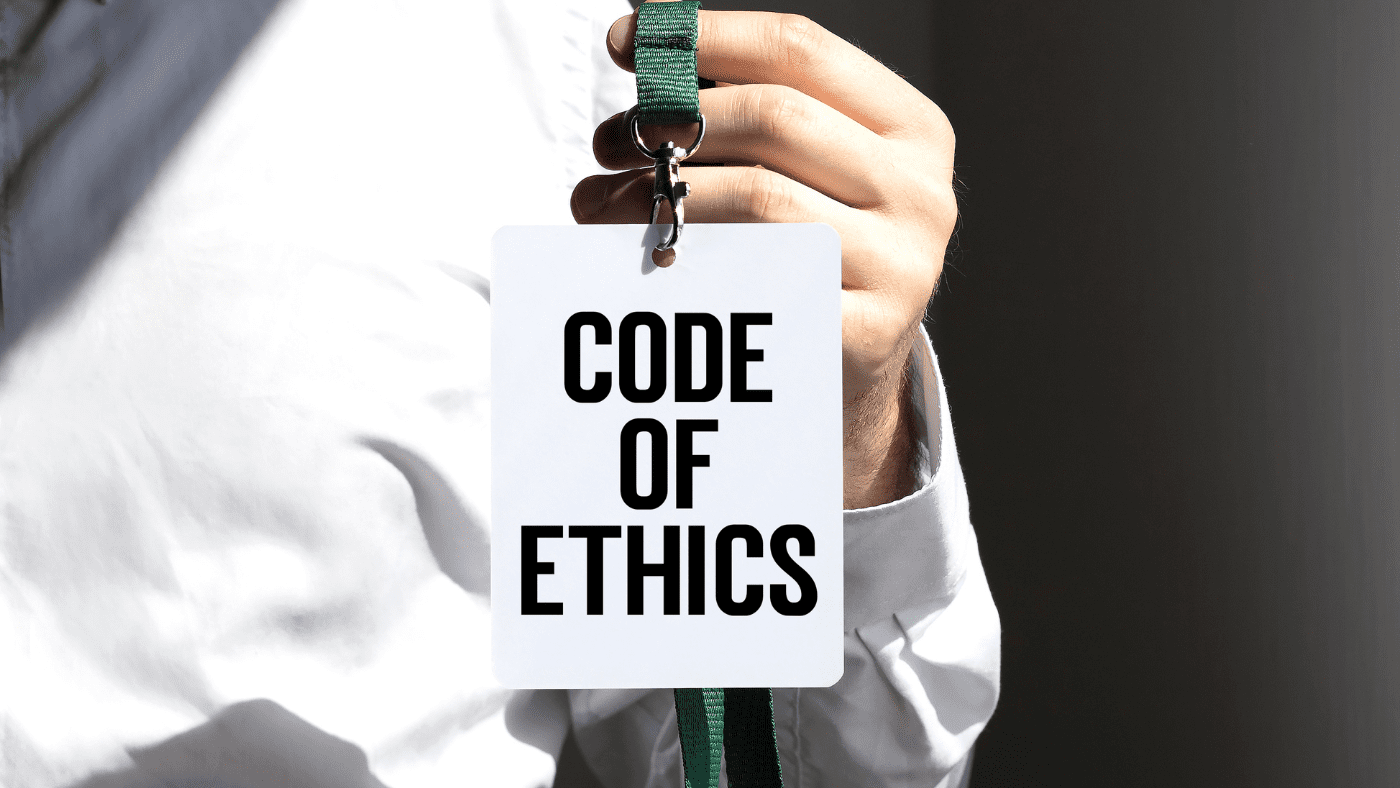In the quest for ethical marketing, we’ve gathered insights from owners to medical directors, distilling their strategies into ten key responses.
From prioritising transparency and honesty to showcasing realistic transformations honestly, these business leaders provide a roadmap for maintaining integrity in your marketing efforts.
Prioritise Transparency and Honesty
I ensure my ethical marketing practices by prioritising transparency and honesty in all communications. In my view, ethical marketing isn’t just about following rules—it’s about respecting your audience and building trust.
One specific strategy I use is being upfront about product limitations or potential downsides in marketing materials rather than only highlighting the positives. This approach might seem counterintuitive but fosters credibility and long-term customer loyalty.
For example, when promoting a service that might only be suitable for some, I clearly outline who it’s best for and who might not benefit as much. This honesty helps manage customer expectations and ensures that those who choose the service are genuinely satisfied.
Ethical marketing creates more meaningful and lasting customer relationships, ultimately benefiting the business and its audience.
Andrew Lee Jenkins, Owner, Andrew Lee Jenkins

Observe Privacy and Seek Consent
At the core of our efforts is ensuring protection and integrity for our customers’ cargo. But our commitment goes further than that. We care about how we market and do so in an ethical way—for example, by always fully observing the privacy regulations relating to our strategies in collecting data.
We realise that in order to be trusted, one must also be deserving of trust, particularly when the business information involved is sensitive. For this reason, all information is gathered from our customers under transparency and with their explicit consent; hence, it adheres to the applicable law on privacy, such as the GDPR.
A clear opt-in for marketing communication has been ensured so that customers are well-informed and can decide as to how their data will be used. This does not only keep us compliant, but it also helps in building long-term trust which our clients place on us due to the transparency and respect for privacy they are accorded.
Sandra Malouf, President, Eurolog Packing Group
Avoid Greenwashing With Evidence
We prioritise avoiding greenwashing. With the rise in consumer demand for sustainable products, there’s also been an increase in greenwashing. This is when companies spend more on looking environmentally friendly than actually being green. But if these claims aren’t backed up by evidence, they can be misleading. Many companies, either intentionally or accidentally, end up violating the “Seven Sins of Greenwashing,” which is not only deceptive but also illegal.
To avoid breaking the law and misleading our customers, any green claims about our products, services, or brand must be truthful and accurate, clear and unambiguous, and must not omit or hide important information. We make sure that our claims genuinely reflect our practices and don’t leave out key details that could prevent someone from making an informed choice.
Danilo Miranda, Managing Director, Presenteverso
Commitment to Authentic Storytelling
At BQC, the most powerful marketing stems from authenticity. We prioritise uncovering and showcasing our clients’ actual brand values, customer experiences, and the genuine impact of their products or services.
We emphasise objective facts, realistic transformations, and honest testimonials rather than relying on exaggerated claims, buzzwords, or flashy gimmicks. This means our campaigns focus on transparent and accurate messaging, showcasing what clients genuinely offer without resorting to overstatements.
We also guide our clients to steer clear of manipulative tactics like scarcity marketing or high-pressure sales, choosing instead to build trust through transparency and straightforward communication. By committing to this level of honesty and authenticity, we not only foster deeper trust between our clients and their audiences but also lay the groundwork for marketing strategies that are both compelling and ethically sound. This is how we help our clients stand out in a crowded marketplace, driving results while staying true to their core values.
Tom Edwards, Founder & Fractional CMO, BQC CMOaaS

Use White-Hat SEO Tactics
To ensure my marketing practices are ethical, I focus on transparency and honesty with both clients and consumers. One specific strategy I use is ensuring that all SEO tactics are white-hat, meaning they align with search engine guidelines and avoid manipulative practices.
For example, when optimising a client’s website, I prioritise quality content creation that genuinely benefits the user rather than engaging in keyword stuffing or link schemes. This approach not only ensures ethical marketing but also builds long-term trust with clients.
A real-life instance that demonstrates this commitment involved a client who wanted to quickly rank for competitive keywords and suggested buying backlinks. Instead, I educated them on the risks associated with such tactics and proposed a content-driven strategy focused on organic growth. This not only kept the campaign ethical but also resulted in sustainable traffic growth, ultimately proving that ethical practices yield better long-term results.
Brandon Leibowitz, Owner, SEO Optimizers
Advertise Based on Objective Facts
To make sure my marketing is ethical, I always try to be objective. It’s easy to fall into the trap of subjective advertising, where you make claims based on personal opinions instead of objective, testable facts. Subjective claims can’t really be proven, and if customers don’t see your product the way you’ve advertised it, they might start to distrust you.
For instance, if I claim I’m selling the best-tasting sandwich around, there’s no natural way to prove that—it’s subjective. That kind of advertising might lead people to doubt whether my marketing is honest.
Alex LaDouceur, Co-Founder, Webineering
Implement a ‘No Overstatement’ Policy
Our commitment to ethical marketing starts with transparency and authenticity in all our content. We’ve implemented a rigorous fact-checking process for every piece of content we produce, ensuring accuracy and truthfulness.
A specific strategy we’ve adopted is our “No Overstatement” policy. We critically examine all claims in our marketing materials, backing them with verifiable data or removing them if they can’t be substantiated. This approach extends to client work as well.
For instance, when promoting a client’s product, we once discovered a performance claim couldn’t be fully verified. Rather than proceeding, we worked with the client to reframe the messaging, focusing on confirmed benefits. This resulted in a more honest, impactful campaign.
Yoyao Hsueh, Founder, Blustrat Agency
Disclose User Data and Verify Claims
Ensuring ethical marketing practices is fundamental to our operations. We adhere strictly to transparency, especially in how we handle and disclose user data. One specific strategy involves our clear communication regarding the use of cookies and data tracking on our website, providing users with easy-to-understand choices and opt-outs.
Additionally, we make sure all our advertising claims about our services are verifiable and never misleading. This commitment extends to our content marketing, where we only share advice and recommendations that are thoroughly vetted by industry experts.
These practices not only align with regulatory standards but also build long-lasting trust with our audience, demonstrating our dedication to ethical marketing.
Justine Underhill, Chief Marketing Officer, Mirador Living
Offer Free Trials for Transparency
As an expert SaaS company, we believe that ethical marketing practice is all about being transparent and honest with the clients. It involves advertising products and services without making any deceptive claims.
An example of our commitment to ethical marketing is the offering of a free trial. This strategy isn’t just designed to attract the attention of new customers. Instead, it focuses on allowing them to use the platform, explore its different features, and determine whether it suits their needs or not. The users are not charged until they become convinced and decide to use the platform by signing up for a fee.
Yogesh Kumar, Digital Marketing Head, eResource Scheduler
Promote Services With Clear Communication
Ensuring that our marketing practices are ethical is fundamental to maintaining trust with our patients. You see, in healthcare, the stakes are high, and people need to know they can rely on us for accurate, honest information. One way we approach this is by being completely transparent in how we communicate our services. For example, when we are promoting our online medical certificates, we always make it very clear what conditions they are suitable for and which situations would require a more thorough, in-person examination.
A specific strategy we use is the creation of educational content that empowers patients rather than pushing services unnecessarily. Instead of simply advertising the convenience of obtaining a doctor’s note online, we also provide detailed information on when it’s appropriate to seek online care versus when to visit a healthcare professional in person. This not only aligns with ethical marketing practices but also ensures that patients are making informed decisions about their health.
Moreover, we strictly avoid fear-based marketing or exaggerating claims about what our services can do. Ethical marketing, especially in the medical field, is about respecting the patient’s intelligence and ensuring that we’re providing a service that genuinely meets their needs without misleading them. It’s about building long-term trust, and that’s something we’re deeply committed to.
Maria Knobel, Medical Director, Medical Cert UK

Showcase Realistic Transformations Honestly
Ethical marketing is really about putting people first, and that’s something we take seriously. We ensure our marketing practices align with our values by prioritising transparency and fairness in all our interactions. For instance, we make a point of accurately depicting the transformations we can achieve through virtual staging. We avoid using exaggerated before-and-after comparisons that might mislead clients into expecting miracles. Instead, we focus on showing realistic improvements that highlight the potential of a property without overpromising.
One specific strategy that demonstrates our commitment to ethical marketing is our approach to customer feedback. We actively encourage honest reviews from our clients and feature them in our marketing materials. This not only provides potential customers with genuine insights into our services but also holds us accountable for maintaining high standards. By fostering an environment where truthfulness and customer satisfaction are at the forefront, we build trust with our audience and reinforce our commitment to ethical practices.
JD Lloyd, Business Development Manager and Project Manager, Bella Virtual Staging
Wrapped: How Do You Ensure Ethical Marketing Practices?
Ethical marketing is more than just a buzzword; it’s a strategic approach that builds trust and drives long-term success. By prioritising transparency, respecting privacy, avoiding greenwashing, and sticking to clear, honest communication, businesses can navigate the complexities of modern marketing with integrity.
The insights from industry leaders serve as a valuable guide, reminding us that ethical practices are not obstacles but rather the foundation for creating authentic and lasting customer relationships.
Implementing these strategies helps protect your brand’s reputation while resonating with an increasingly discerning audience. Being genuine and transparent in a marketplace flooded with noise sets you apart, proving that integrity is a competitive advantage. For more on how ethical marketing is evolving and actionable tips for 2024, take a look at our in-depth article on ethical marketing.

